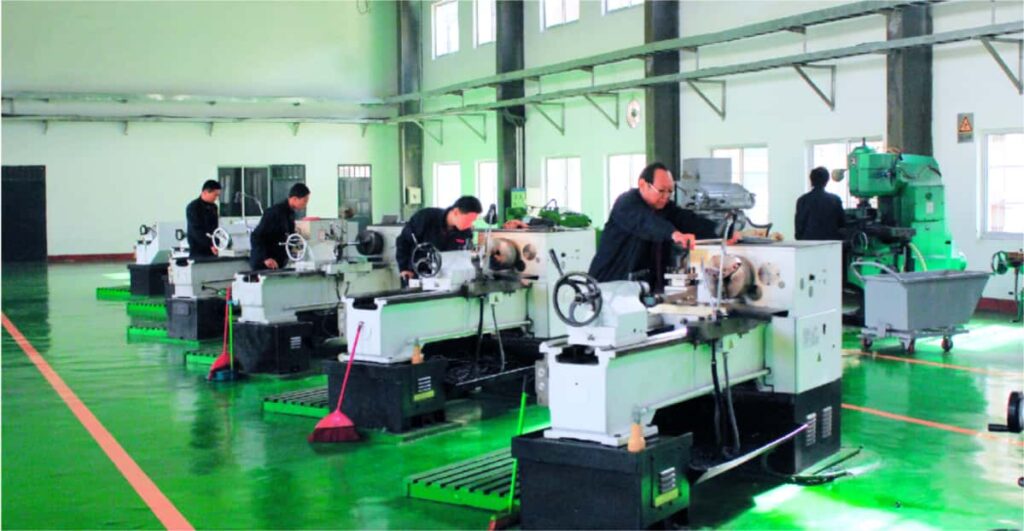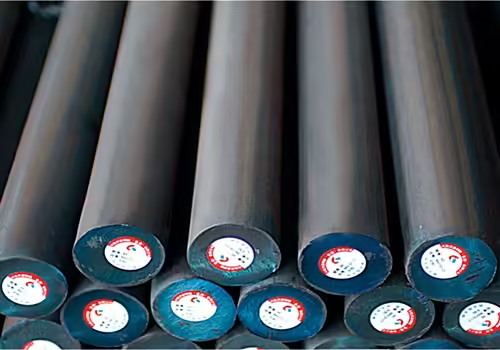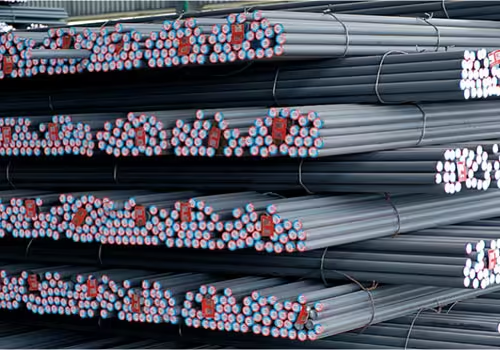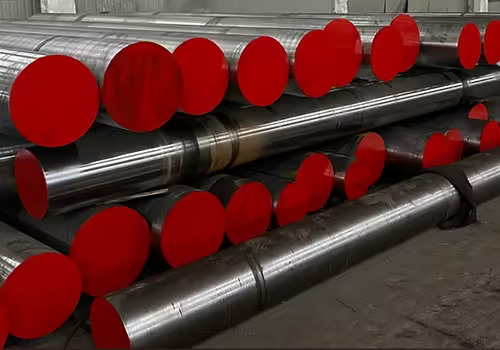
Discover the Hidden Benefits of Using 4140 Alloy
Table of Contents
Introduction

4140 alloy steel is one of the most widely used materials in a variety of demanding applications. It is particularly valued for its excellent combination of toughness, high tensile strength, and wear resistance, making it a top choice in industries such as automotive, aerospace, oil and gas, and construction. This steel offers a great balance of hardness and flexibility, allowing it to withstand extreme stress, pressure, and temperatures. In this post, we will take a closer look at what 4140 alloy is, its key benefits, and why it is a preferred choice for heavy-duty industrial applications.
Henan Jiyuan Iron and Steel (Group) Co., Ltd. was founded in 1958. It has rich experience in production and research and development. It provides you with one-stop steel services and welcomes consultations from customers around the world.
What is 4140 Alloy?

4140 alloy steel is a low-alloy steel containing carbon, chromium, and molybdenum, which gives it enhanced mechanical properties. These properties include excellent toughness, good hardenability, and superior wear resistance. It is typically used in the quenched and tempered state, which helps to maximize its strength and durability. The alloy’s composition of 0.40% carbon, 0.90% chromium, and 0.20% molybdenum makes it ideal for applications that require high strength, hardness, and impact resistance.
Chemical Composition
The unique performance of 4140 alloy steel stems from its precise chemical composition. Here’s a breakdown of the key components that define 4140 alloy:
- Carbon (C) – around 0.40%
- Chromium (Cr) – about 0.90%
- Molybdenum (Mo) – approximately 0.20%
- Manganese (Mn) – typically 0.75%
- Silicon (Si) – typically 0.25%
This carefully balanced composition provides 4140 alloy with its remarkable ability to resist wear, corrosion, and fatigue under extreme conditions. The alloy’s hardness can also be adjusted with heat treatment, offering manufacturers flexibility in tailoring it for specific applications.
Key Benefits of Using It
4140 alloy brings a variety of benefits that make it indispensable for industries that require high-strength, durable materials. Below are some of the top reasons to choose 4140 alloy:
High Strength and Durability
4140 alloy is renowned for its high tensile strength, which allows it to handle significant pressure and load without deformation. This makes it ideal for parts that are subject to heavy mechanical stress, such as shafts, gears, and axles. Its durability ensures that components made from 4140 alloy can endure for long periods in demanding environments without significant wear and tear.
Resistance to Fatigue and Impact
One of the key advantages of 4140 alloy is its exceptional resistance to fatigue and impact. This steel is designed to withstand repeated cyclic loading, making it suitable for components like gears, drive shafts, and cranks, which face repeated stress over time. Its toughness allows it to absorb impact without cracking, making it an excellent material for high-impact applications like mining equipment and construction machinery.
Versatility in Heat Treatment
4140 alloy is highly adaptable to heat treatment processes. When heat-treated by methods such as quenching and tempering, its hardness and tensile strength can be significantly enhanced, making it suitable for even more demanding applications. The alloy can be hardened to a greater depth, which is beneficial for components that require high wear resistance.
Excellent Weldability
Despite its high strength and toughness, 4140 alloy is relatively easy to weld compared to other high-strength materials. Proper heat treatment during the welding process ensures that the integrity of the alloy is maintained. This makes 4140 alloy a great choice for applications where welding is necessary, such as in structural frameworks, automotive components, and pressure vessels.
Resistance to Corrosion and Wear
4140 alloy has moderate resistance to corrosion and wear. While it is not as corrosion-resistant as stainless steel, it performs well in environments where exposure to moisture and chemicals is minimal. Its ability to withstand wear makes it a top choice for high-traffic industrial applications, such as machinery parts, tools, and automotive components that face harsh operating conditions.
Application

Due to its strength and versatility, 4140 alloy is used in a variety of industries. Some of the most common applications of this include:
- Automotive Industry: It is used for the manufacturing of automotive components like axles, crankshafts, and gear shafts. Its high strength, wear resistance, and fatigue resistance make it ideal for parts that experience high mechanical loads and stress.
- Aerospace Industry: This alloy is also used in the aerospace sector for components such as landing gears, drive shafts, and structural parts. Its strength-to-weight ratio makes it suitable for high-stress applications where durability is crucial.
- Oil and Gas: In the oil and gas industry, 4140 alloy is utilized for downhole tools, drill rods, and other components that need to withstand high temperatures and pressures.
- Construction and Mining: The alloy is used for heavy-duty construction equipment, such as machinery parts, hydraulic components, and mining tools. Its resistance to wear and impact makes it ideal for use in harsh environments.
- Manufacturing Tools: 4140 alloy is often used for tool manufacturing, including tools for machining, drilling, and other high-wear processes. Its toughness and wear resistance ensure long-lasting tool performance.
Comparison with Other Steel Alloys
To better understand the unique advantages of 4140 alloy, let’s compare it to other popular steel alloys commonly used in industry. Below is a table that highlights how 4140 alloy measures up against 1045 steel and A36 steel, two other well-known materials.
| Property | 4140 Alloy | 1045 Steel | A36 Steel |
|---|---|---|---|
| Tensile Strength | High | Medium | Low |
| Corrosion Resistance | Good | Fair | Poor |
| Hardness | High | Medium | Low |
| Weldability | Excellent | Good | Excellent |
| Applications | Automotive, aerospace, oil & gas | General-purpose machinery | Structural steel construction |
As seen in the table, 4140 alloy stands out for its high tensile strength, superior hardness, and excellent weldability, making it the material of choice for demanding applications. While 1045 steel is suitable for general purposes, and A36 steel is commonly used for structural applications, 4140 alloy outperforms these steels in areas that require high strength and resistance to wear and corrosion.
Conclusion

4140 alloy steel is one of the most robust and versatile materials available for heavy-duty industrial applications. Its excellent mechanical properties, such as high strength, resistance to fatigue and impact, and the ability to withstand high temperatures, make it the material of choice for components subjected to extreme stresses and harsh environments. Whether in automotive, aerospace, oil and gas, or construction industries, 4140 alloy proves to be reliable, durable, and adaptable, ensuring long-term performance for critical applications.
FAQ
What makes it so special?
4140 alloy’s special combination of toughness, high tensile strength, and excellent wear resistance makes it ideal for heavy-duty applications where standard materials may fail. It’s versatile and can be heat-treated to meet specific performance requirements, making it one of the most adaptable materials for industrial use.
How is it used in the automotive industry?
In the automotive industry, 4140 alloy is used for high-stress components such as crankshafts, axles, and gears. Its ability to withstand high loads and repeated stresses ensures these components perform efficiently for long periods without failure.
Can it be used in the aerospace industry?
Yes, 4140 alloy is valued in the aerospace industry for its combination of strength, toughness, and resistance to wear. It is used in critical components like landing gears, structural supports, and drive shafts, where performance reliability is essential under extreme stress.
How do I properly heat treat 4140 alloy?
4140 alloy is typically heat-treated through a process of quenching and tempering. This involves heating the steel to a specific temperature to increase its hardness, then cooling it rapidly to lock in those properties. Afterward, tempering is performed to adjust the hardness level to the required specification while ensuring the material remains tough






